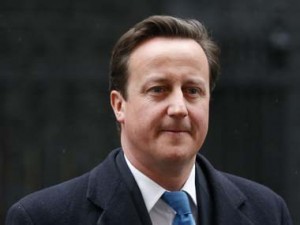Well, England just exited the Football Euro Cup. British politicians, political commentators, journalists, EU diplomats, investment bankers, credit rating agencies, Nobel Prize economists, the IMF and even the World Bank are shocked and up in arms against the result.
How could it happen despite arguing against it over the past few months? Most refuse to believe it actually happened. Surely, the rules of the game need to change, they now contend. England just lost by a goal after all, it was too close a result and a re-match (or a re-match of the re-match) would be ideal unless they get the desired result.
Sounds familiar? Yes. This is the same kind of reaction we have been hearing of and reading about — not just in Britain but from all over the world — for voters in UK chose to exit the European Union. The Parliament does not seem very different and watching them debate yesterday felt as if UK had just been nuked. Yes, the road ahead seems uncertain, the economy is in shock, the currency has been hit, but despite all of this, didn’t the voters just demand that the power of law-making moves Brussels to London? British politicians seem genuinely upset over the increase in workload they have been handed over with.
And yet, several emotions – including anxiety, fear, restlessness, paranoia, hate and relief – were visible during the House of Commons discussion over Brexit on Monday. After all, political careers were put on the line over the referendum. Sitting and watching them from India evoked two sets of reactions: one of genuine delight over how easy it was for MPs to question the Prime Minister (In India, a journalist was finding it tough) and the other was of a certain familiarity with proceedings (The politicians in UK seemed as disconnected from people as they are in India).
 Indeed, the MPs raised some really tough questions to the Prime Minister: Has he re-considered his decision of stepping down as the PM? Will he immediately press for leaving the EU and trigger Article 50 of the Lisbon Treaty? Is there a requirement for the Prime Minister to press for Article 50? Could the UK avoid triggering Article 50 at all? If the referendum is non-binding and only “advisory”, can the Parliament have any say over it? If not, then can the Parliament decide over the terms of withdrawal? Have any preliminary discussions began with other EU countries? If not, when will the process of leaving start and what all will it constitute of? Can the Parliament help oversee such a process? What happens to Scotland? What about EU citizens in England and England citizens in EU? What are the timelines, if any? Most importantly, is there a plan to call for early elections?
Indeed, the MPs raised some really tough questions to the Prime Minister: Has he re-considered his decision of stepping down as the PM? Will he immediately press for leaving the EU and trigger Article 50 of the Lisbon Treaty? Is there a requirement for the Prime Minister to press for Article 50? Could the UK avoid triggering Article 50 at all? If the referendum is non-binding and only “advisory”, can the Parliament have any say over it? If not, then can the Parliament decide over the terms of withdrawal? Have any preliminary discussions began with other EU countries? If not, when will the process of leaving start and what all will it constitute of? Can the Parliament help oversee such a process? What happens to Scotland? What about EU citizens in England and England citizens in EU? What are the timelines, if any? Most importantly, is there a plan to call for early elections?
To watch the political class unite to ask these not-so-easy questions while being completely divided was a unique experience. No doubt, the Prime Minister handled them well, arguing to accept the verdict of the people while ignoring and passing some questions to the next government. The Prime Minister looked deeply passionate when answering about fear of incidents of racism in the country. And yet, the more he answered, the more his colleagues in the Parliament wanted to discuss xenophobia.
Source From : firstpost.com




